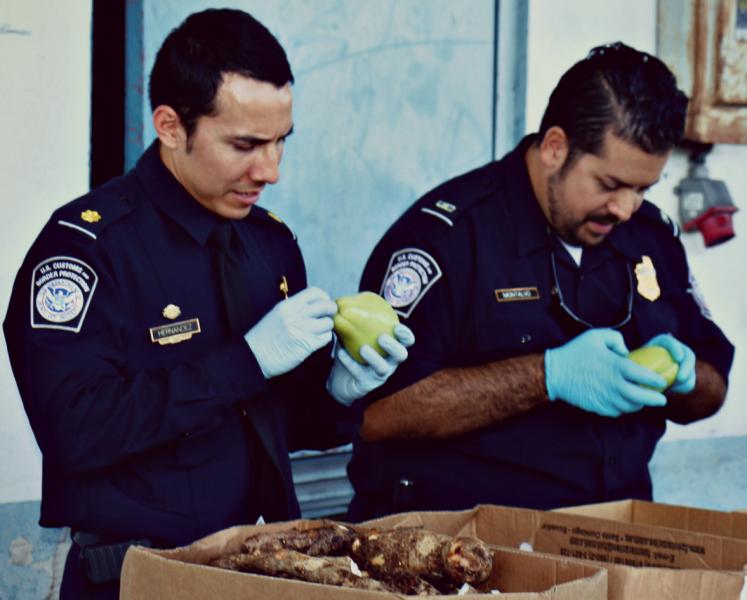MIAMI — U.S. Customs and Border Protection (CBP) agriculture specialists have already intercepted a dozen significant and potentially destructive pests this year at various ports of entry in Florida as part of the agency's all-encompassing efforts to safeguard American agriculture.
Unknown pests pose a significant risk in agriculture due to a lack of knowledge in controlling the pests and the extent of damage they can cause to crops. U.S. Department of Agriculture (USDA) entomologists recently classified eight pests discovered by CBP agriculture specialists in Florida as first-in-the-nation interceptions and another pest as a new species.

Safeguarding American Agriculture
Each year, highly-trained CBP agriculture specialists intercept tens of thousands of “actionable pests” nationwide. They are highly-trained and specialized professionals who work tirelessly, and they are constantly vigilant in targeting, detecting, and intercepting fruit and vegetable imports that may contain hidden threats, particularly pests and diseases, which can have devastating effects on both consumer safety and our nation’s economy.
CBP agriculture specialists often intercept these pesky insects through ports of entry such as Miami International Airport, Port Everglades, Miami's Seaport and Port of Jacksonville.
“A single pest can potentially cause millions of dollars worth of damage and CBP agriculture specialists in Florida are truly the first line of defense,” said Miami/Tampa Field Office Director of Field Operations Diane Sabatino."CBP's agriculture specialists across the sunshine state play a critical role in safeguarding the U.S. agriculture industry and the nation's economy."
According to the U.S. Department of Agriculture, agriculture is the largest industry and employment sector in the United States, with more than $1 trillion in annual economic activity. The potential impact of a pest coming into the United States can be catastrophic. For example, invasive species cause $138 billion annually in economic and environmental losses in the United States, including yield and quality losses for America’s agriculture industry.
On a typical day in fiscal year 2017, CBP agriculture specialists discovered 352 pests at U.S. ports of entry and 4,638 materials for quarantine. Travelers can check the general admissibility of fruits and vegetables by consulting the Animal and Plant Health Inspection Service website or the Fruits and Vegetables Import Requirements database.
CBP’s Miami/Tampa Field Office is uniquely tasked with protecting agriculture while permitting high risk agriculture commodities to flow through majors ports such as Miami International Airport. Due to its geographical significance, CBP’s national Centers of Excellence and Expertise for Agriculture & Prepared Products is based in Miami.
Follow @CBPFlorida on Twitter for the latest U.S. Customs and Border Protection—Florida news and information updates.


